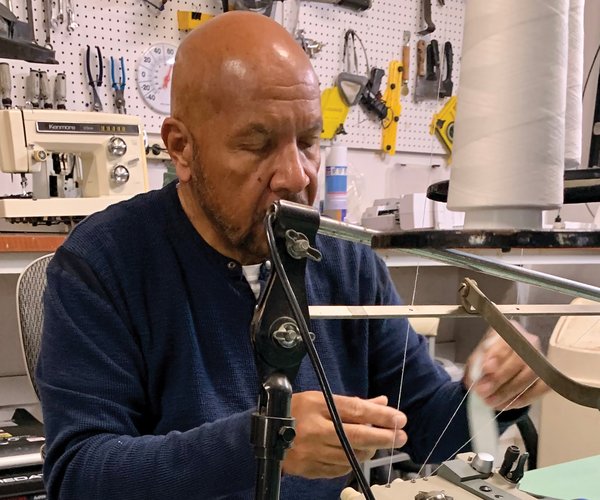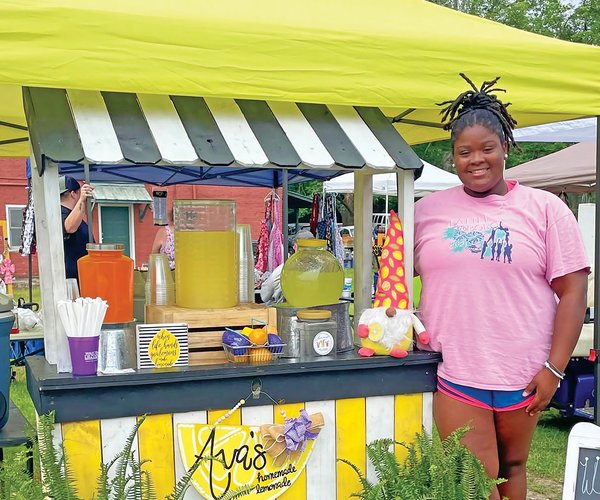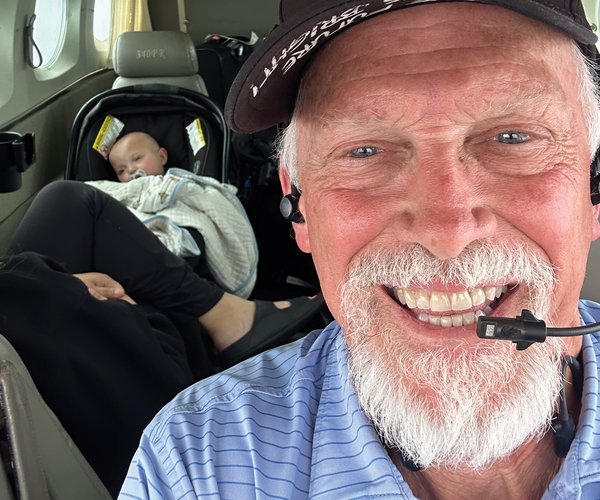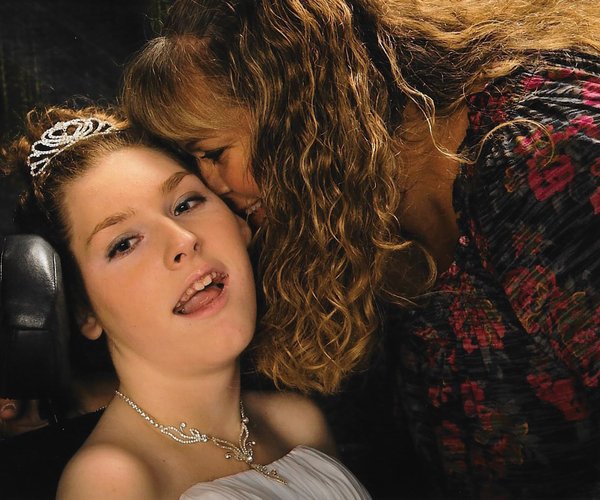There are certain clubs in life that no one joins willingly. Infertility is just such a club.
Yet membership numbers are staggering.
According to a National Survey of Family Growth study completed by the United States Centers for Disease Control and Prevention (CDC) for the years 2004 through 2010, 1 in 8 couples reported difficulty getting pregnant or carrying a pregnancy to term.
Discovering Bulloch recently caught up with two women who spoke very openly about their infertility journey. Ashlee Corbin, multimedia account executive with the Statesboro Herald, has been married to Jason Corbin, who works in Sylvania at Koyo Bearings, since November of 2011. Michelle McCoy and Bobby McCoy, who wed on Valentine’s Day in 2009, welcomed Owen Parson into their lives six months ago.
“When I look at my network of girlfriends at work or my small group of close friends, I’m that 1 out of 8,” said Ashlee Corbin, referring to the CDC study. “It humanizes it, puts a face with the statistic .It’s a physical, emotional, mental and spiritual battle.”
Because she said the emotions can be all over the place, and are sometimes exacerbated when medications and procedures are added to the fray, Corbin feels like she’s often on a roller coaster of thoughts and feelings.
“During our six years of trying, I’ve known a lot of people who have gotten pregnant and have had kids,” said Corbin.
Corbin said she wants to be excited for them – and she is – but it’s very easy to say, “Why not me? Then you feel guilty for even asking that,” she admitted. “I always thought I’d have kids by 30. It’s a deadline I set for myself.”
Corbin, who is 33, said it wasn’t a conscious decision to stop taking the birth control pill at one point. “I just never got them refilled one time.”
After months that turned into slightly over a year with no pregnancy, Corbin decided to talk with her doctor.
“Infertility puts so many thoughts into your head,” she said. “Am I not really ready for kids? Could this happen? Should this happen? Is it my fault? Am I doing something wrong? Not doing something right?”
And as if those emotions aren’t enough to bring down a couple who long to hold a baby in their arms, the added struggle of exorbitant, out-of-pocket expenses causes a huge strain on an already-devastating situation.
“Most insurance plans don’t cover the costs of fertility specialists,” Corbin explained. The Corbins went through an IUI procedure, or intrauterine insemination, in 2017. “Medications, ultrasounds, bloodwork, trips back and forth to Savannah, daily injections,” said Corbin to summarize the procedure.
On the very day Corbin realized the procedure didn’t take, she was supposed to attend a gender reveal party. “I couldn’t do it,” Corbin admitted. “I can be sad for myself and happy for you at the same time, but it’s still hard for me.
“I know that babies are a blessing. I don’t want someone to be less excited because I’m struggling. I don’t want their joy to be overshadowed by my sadness. I’ve been jealous a lot. I know that my time’s coming …. or if it’s not, then, that’s the plan.”
Michelle McCoy, former full-time employee of Synovus, and her husband, Bobby, who works at White Electric in Savannah, had no idea they’d join the infertility club, just over five years after marrying.
“We began to seriously think about starting a family in January of 2015,” said McCoy. With no results for months, McCoy began the infertility conversation with her doctor in November of 2016.
In January of the next year, McCoy underwent laparoscopic surgery and with nothing alarming noted, her doctor prescribed Clomid, which is an oral medication used to stimulate ovulation. “February, no luck. March, no luck. April, no luck. Then, we got a positive pregnancy test. My levels were low, so I was supposed to go back for a recheck.”
On the road to an out-of-town work trip, however, McCoy received news over the phone that her body was actually going through a miscarriage.”
“I got that devastating news, out of town, without my husband,” she said.
A different type of grief set in for the McCoys.
That grief is one that the Corbin couple has not experienced. “As misguided as it sounds, I’m jealous that I haven’t grieved a miscarriage, because then I would think at least I could get pregnant. There would be a protocol to follow next.”
Corbin recognizes the oddness of the statement, inviting a new kind of grief, but said loss causes you to think and feel irrationally.
After three more months of Clomid, McCoy’s doctor took her off the medication and suggested she make an appointment with a reproductive endocrinologist.
“He said I had no chance of having a child naturally,” said McCoy with a bit of disdain and skepticism. “But we know that the doctor doesn’t have the final say – God has a plan for our lives.”
With much discussion about IUI procedures and IVF, in-vitro fertilization, the McCoys were just before scheduling an IVF at the suggestion of the specialist.
“We had an appointment on October 31 to pay for and choose a date for the procedure,” she said.
Instead, on October 28, McCoy took a pregnancy test because she was five days late. “No medicine, no treatments, and I’m never late, so I took a test. It was positive.”
With the previous miscarriage, McCoy said she didn’t truly relax until Owen Parson, OP for short, entered the world on July 5, 2018.
On the other side of infertility now, McCoy still remembers vividly the difficulties and emotions she and her husband dealt with. “I’m fortunate that I have a husband with a strong faith, because on my weak days, he was strong.”
Corbin is blessed with a supportive husband, as well.
“I struggle most when Ashlee is struggling,” said Jason Corbin. “I try to remain upbeat and positive for her sake and just be a shoulder to cry on for her. It’s not always easy to be strong, but I know that is what she needs sometimes, so I do my best to be there and be supportive and encouraging.”
Both women agreed that, for the most part, they received huge support and encouragement from those surrounding them. However, both women also said that quite often, well-meaning comments were, in fact, quite hurtful.
“Everybody is an armchair doctor and has opinions on what will work, what worked for them,” said Corbin. “Well, Tylenol gets rid of my headaches. It might not work for you.”
Sometimes, on a bad day, a simple question like, “When are y’all going to have kids?” can be a crushing blow, Corbin said.
McCoy said that a comment stung particularly when someone callously suggested that her miscarriage was “an early loss.”
“Sometimes, people just don’t think before they speak,” said McCoy.
Corbin said that social media can be helpful and harmful.
“It’s amazing how infertility builds a community,” she said. “One mention on Facebook and you’ll have a flood of support. And a flood of advice. Sometimes, I just want sympathy – not in a needy way, but not advice. Unsolicited advice is never the way to go. Don’t push.”
McCoy said when others would make insensitive comments, like, “Just relax; it will happen,” she usually remained quiet but would work through her feelings with her husband and close friends who gave her biblically-sound advice.
“There were good days and bad, especially after the miscarriage,” said McCoy. Just after that time, McCoy couldn’t bring herself to return to her church choir, something she had previously loved.
“The music leader told me, “It’s OK not to feel like you want to sing now. Eventually, you’ll have your voice back.”
And she said another friend would walk past her at church, gently kiss her on the top of the head and squeeze her shoulder.
“That’s all – no words,” said McCoy. “Some days I chose to believe God and have hope, and some days I let my emotions rule me. But that’s the beauty of grace. If you’re on the infertility journey, give yourself grace. Understand the feelings you have are valid and real, no matter what others say to you, and you don’t have to explain those feelings.”
Jason Corbin adds his advice: “Don’t place blame on one another. Sometimes when Ashlee tries to apologize for our situation, I remind her that it isn’t her fault. This isn’t something she did or asked for. The main thing you can do is be there for your wife. Be supportive and listen to her – even if she goes on for hours about it. Remember that it’s not just a physical thing. You’re affected mentally as well.”
A roller coaster of emotions in a club no one chooses to join.







